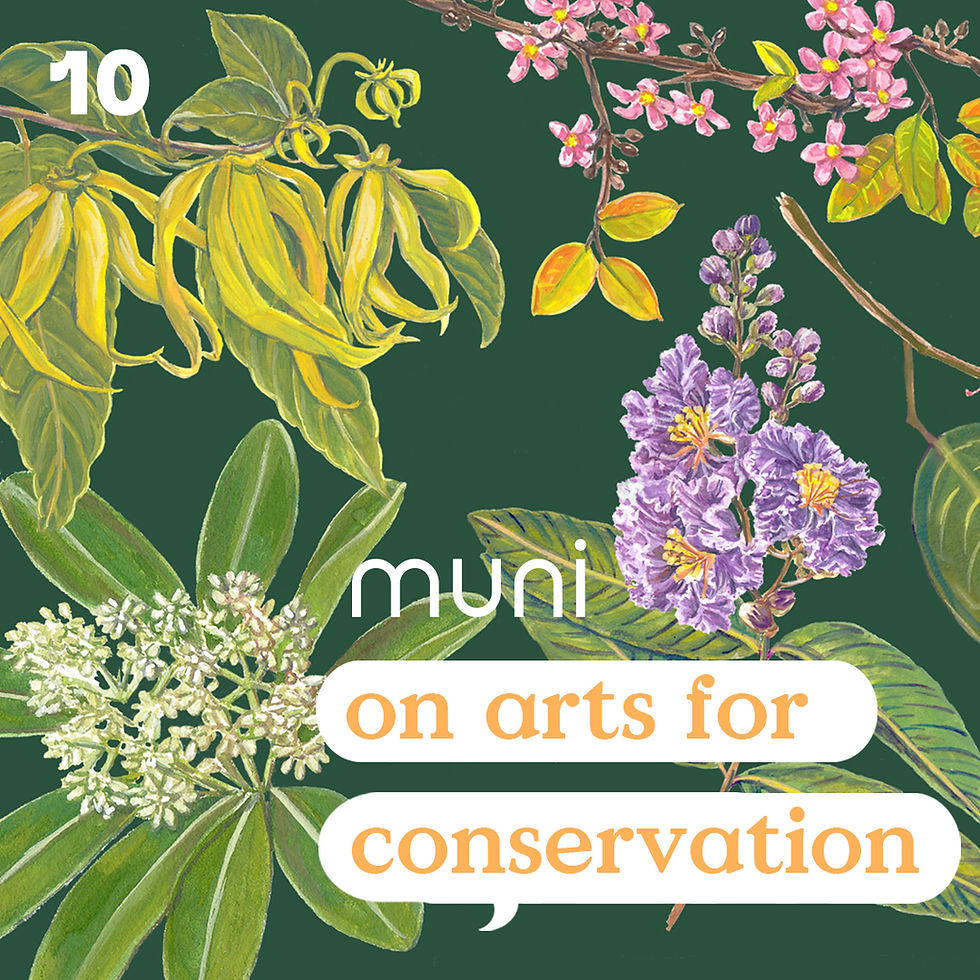The Real “Internet of Things”: On Technology, Psychology & Ecology
- Team Muni

- Aug 2, 2016
- 3 min read
There is this buzzword going around in the tech, startup and innovation scene called “The Internet of Things” or IoT, a rather airy term referring to “the concept of connecting any device with an on and off switch to the Internet (and/or to each other). This includes everything from cellphones, coffee makers, washing machines, headphones, lamps, wearable devices and almost anything else you can think of,” as explained by Jacob Morgan. [1]
IoT allows for infinite connections to be made, many of which we can’t even think of or fully understand the impact of today, allowing us to be more connected, mobile, omniscient / omnipresent than ever before.
And yet, as many writers and thinkers have done before, I wonder, what then happens to truly being “connected”, in the way we had been prior to the influx of all this new technology? How do these help us connect with ourselves? With others? With our environment?
Propositions for Connections
The idea of interconnectedness can mean one thing to techpreneurs, developers and engineers, and another thing to psychologists, to spiritual leaders or religious practitioners, to environmentalists.
But I’d like to propose that innovators in tech constantly bear in mind the human psyche, humanity and the planet as they devise new ways to bring ease, convenience and supposed fluidity into our lives.
I’d also like to propose that students of the human mind also study and share more insight on how it is directly affected by ecology and the environment. It is not separate. Taking opportune breaks, exposure to nature, and a clutter-free space can increase productivity and focus.
I’d like to propose that the church (or whatever religious body) also teaches its followers about what it truly means to be grateful for the gifts that their respective god/s have given its people by being an example of simplicity, non-attachment to the material and true stewardship of nature, as opposed to the opulence I currently associate with the intricate and excessive places of worship with their gilded altars and superfluous air-conditioning.
If we are truly grateful for some deity’s blessings, we should then cherish the human and environmental components that go into what we eat, the things we buy, and make sure not to abuse resources by using much more than we need, because for everything we consume, we affect something else.
We Shouldn’t All Be Monks
I’m not saying here that we ought to all just pack up our essentials and move to the boondocks. But rather, rethink what is truly essential to us, and how our thoughts, words and actions impact others, so that we don’t tread unnecessarily on a path that isn’t consciously of our choosing.
There are many professions and preoccupations that deserve time and appreciation: art, science, technology and the humanities, but it’s a question of the grander scheme of things too.
“We have created a society in which the rich become richer and the poor become poorer, and in which we are so caught up in our own immediate problems that we cannot afford to be aware of what is going on with the rest of the human family or our planet Earth. In my mind I see a group of chickens in a cage disputing over a few seeds of grain, unaware that in a few hours they will all be killed.” ― Thich Nhat Hanh, The World We Have: A Buddhist Approach to Peace and Ecology
In the tech startup world, it is not uncommon for you to hear about fundraising, growth and acquisition, innovation. In the creative world, it is not uncommon for you to hear about an exhibition, show or book / product launch. But how can we perhaps connect it to something bigger than the startup, entrepreneur or artist alone?
So for me, the real “Internet of Things” in this day and age is finding true connection with ourselves and with each other, and having an awareness of the impact of the things we do. It is being grounded by history, humanity, nature and tradition, without shunning technological advancement and globalization, and finding ways to create more connections between these by turning on that switch in our mind that is usually off.
ABOUT THE AUTHOR Jen Horn is a wanderer, writer, and founder of MUNI, a community for mindful living. She encourages people to think critically – to ask questions about how they shop, eat and travel, to explore more socially and environmentally mindful ways of living while remaining kind to one’s self.
She writes about psychology, wellness and the environment, and loves diving and bike-commuting. Follow her at @nomadmanager.







Comments